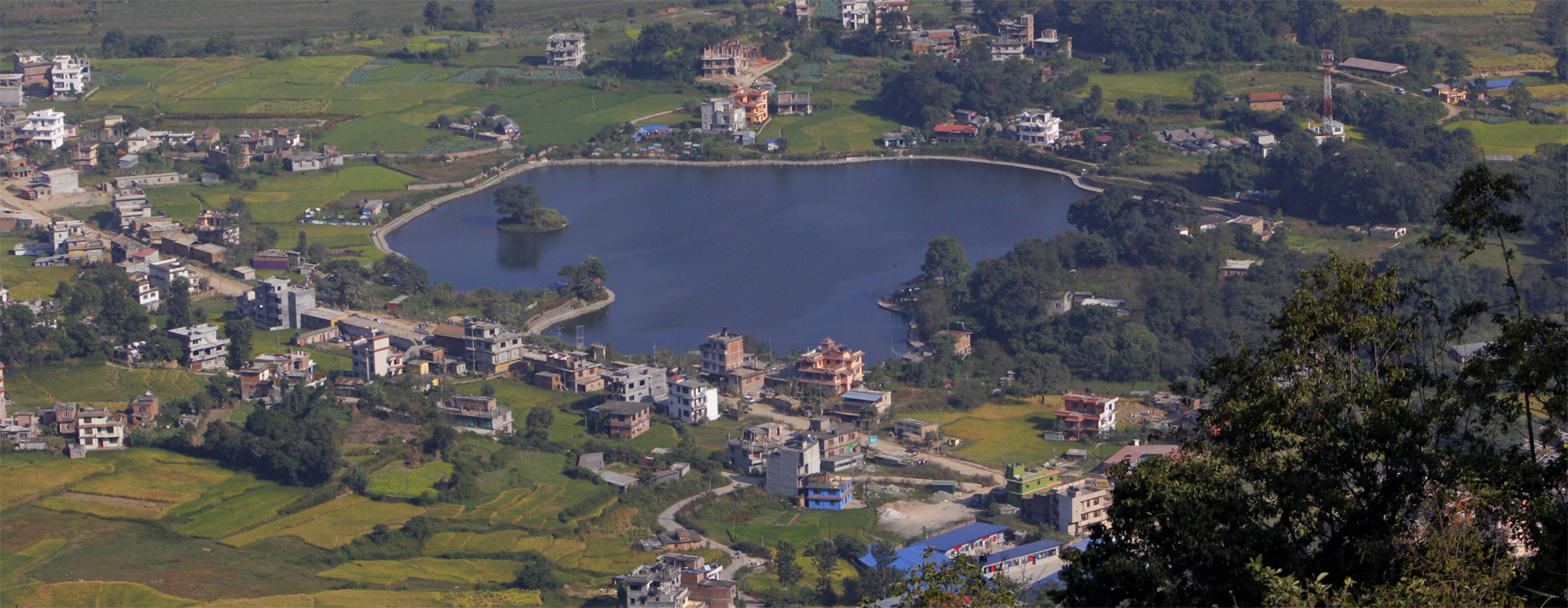Located in Kirtipur Municipality of Kathmandu District, Taudaha is a charming and beautiful place. It has eight angles. Wherever you stand, you don’t see all angles of this lake. Only seven are visible. It is spread over a total of 86 ropanis, which is 500m long and 400m wide. The word Taudaha is derived from the Newari language where ‘Ta’ means snake and ‘Daha’ means Lake. It is the largest natural Lake in Kathmandu valley. Due to its special features, many locals and some foreigners visit the place, and its tourist importance is increasing day by day. The lake has direct relation with the procession of Rato Machhindranath.
Not only that, but this lake is also equally important as a religious place, too. People believe that bathing in the water of this lake cures skin lesions, herpes, and other skin related ailments. Likewise, it is also believed that if people bring fish to this pond, then their wish will get fulfilled. Therefore, Buddhist Lamas and other pilgrims offer different fishes in this lake. These fish have been used to enhance the beauty of the lake. The locals believe that these fishes should not be eaten otherwise bad luck will occur.
Nobody knows how deep Taudaha lake is because there is a deep hole in the middle of the ditch. So, after going in the middle, they get pulled. Because of that, no one could find the depth of the lake. As per the locals, the water has come from a great depth and that it also contains minerals. Because of the presence of the minerals, the skin is assumed to be healed from different allergies.
History
As per the myth, when Manjushri made a hole in the valley’s water and let the water out, Karkotak Nagraj became angry with him. Nagraj decided to cause harm to him. However, Manjushri maintained peace with Nagraj by inviting him to Taudaha. Once when the wife of Nagraj was suffering from eye pain, a Jyapu from Lalitpur visited him and helped in curing her eye pain. Nagraj became happy and gifted Bhoto to Jyapu.
According to the legend, once when Jyapu was working in the field by removing the Bhoto, someone stole the Bhoto and escaped from there. After a few days, a wild battle occurred between Jyapu and the one who stole a Bhoto. After seeing their battle, Rato Machhindranath tried to maintain peace between them by ordering them to come back only with proof. Until then, jewel encrusted Bhoto will stay with Rato Machhindranath. Since, both of them don’t know much about the Bhoto and Jyapu also don’t have idea about how to reach Nagraj, so Bhoto continued to be with Rato Machhindranath. Since then, every year, there is the tradition of showing Bhoto in the Rato Machhindranath Procession.
Myth
There is a legend that if you bathe with the water of this lake, then you will become beautiful, and all their wounds will heal. The Sundari Ghat and Shubhalakshyan Tirtha near Kirtipur Bazaar prove that people who bathe in the water of this lake are considered to be beautiful and have good fortune. There is a legend that the name of the ghat is Sundari Ghat because the young women bathe in the water believing that they will become beautiful. It is mentioned in the Swayambhu Purana that when a child with bad luck consumes the pilgrimage in the lake, all his bad luck disappears, and good luck appears.
Fair in Taudaha
Every year, a big fair is held in Taudaha on the day of Nag Panchami. Taudaha is believed to be the resident of the cancer snake. So, on this day, people from different cities visit and pay homage to the Nagraj.
Biodiversity
Taudaha is very crucial for biological research as there is the presence of 38 species of plants, 116 species of birds, and 36 species of insects. Many summers and winter migrant birds can be observed here. Some of the resident birds such as Cattle egret, Jungle crow, Red-vented bulbul, Black drongo, and White-throated kingfisher are present in this area. Most popular summer migrant birds are Barn Swallow and Indian cuckoo. Likewise, Great cormorant, common teal, Gadwall, Northern shoveler, and Ruddy shelduck are some of the winter migrant birds.
Taudaha lake is very famous for the different species of fishes such as Grass carp, Common carp, Bighead carp, silver carp, and so on. There non-native species are disrupting the ecosystem of native species such as catfishes and snakeheads. Moreover, mammals such as Indian grey mongoose, Golden Jackal, and so on are found in this lake. Furthermore, reptile species such as Checkered keelback and Oriental Garden lizard are also found in the lake.
-By: Kusum Kharel for Land Nepal




